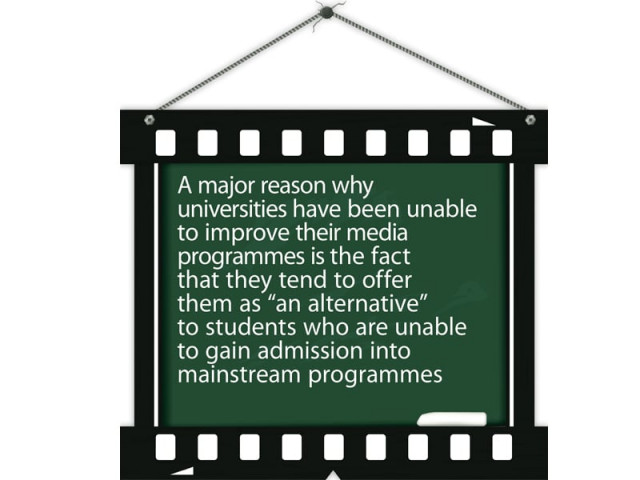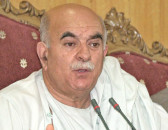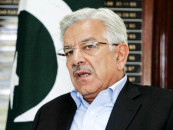Why Pakistan still doesn’t have a film school
Faculty members of media schools discuss what went wrong when they tried to formalise film education in Pakistan

Faculty members of media schools discuss what went wrong when we tried to formalise film education in Pakistan.
It is no coincidence that the rebirth of cinema in Pakistan has coincided with a rise in universities offering degrees in programmes like Media Sciences and Filmmaking. Despite this, universities tend to treat programmes such filmmaking in the same manner as other more popular degree programmes such as Business Administration, Social Sciences and Computer Sciences to name a few.
A perfect example of this can be how many of the institutes offering undergraduate degrees in these programmes tend to have a standardised test as part of the admission process. The tests tend to be very similar (or are exactly the same) to the entrance exams conducted for business and social sciences programmes being offered in the university. This not only reflects the non serious attitudes of universities towards a technical craft like film but also puts a question mark on the very existence of film schools in Pakistan.

Daniyal Ali Khan, a member of the Sindh Censor Board and former instructor at the Shaheed Zulfiqar Ali Bhutto Institute of Science and Technology Media Sciences department and Dean South Asian Academy of Motion Picture and Television (Saampt) before it closed down, concurs the absence of film schools in Pakistan.
“At the moment, there is no film school in the country as all of these departments are part of Business Schools and universities and are operating like businesses as well,” says Khan.
Dr Framji Minwalla, Assistant Professor and Chairperson of the Social Sciences & Liberal Arts department of the Institute of Business Administration (IBA), on the other hand, noted that institutes should restructure their curriculums to ensure that they are not just producing “technicians”.
“Courses in film-making and film studies should be part of, but not the focus of, programmes in media studies. These programmes should offer courses on media and communication processes, media and communication history, theory, and so on. Students need to learn something about the media before they receive any practical training,” states Dr. Minwalla.
Despite being unable to maintain the same level of intensity and quality of the program universities have increased their student intake in the Media Sciences and Filmmaking programmes, which has resulted in a high student-to-faculty ratio.

“It is very impractical to have a high student-faculty ratio as each student would not be getting the attention they require. You can have more students in theoretical courses but not in practical courses in filmmaking,” states Khan
Ejaz Wasay, Dean of the Media Studies department at the Institute of Business Management (IoBM), explains the reason behind universities having standardised testing as part of their admission process saying, “Colleges and universities all over the world practice standardised testing and even art schools abroad require SAT and ACT scores.”
Despite this, he believes that the need for differentiating college admission testing by discipline cannot be “under-emphasised”. He added that one thing must be assessed before administering a proper testing process is that “how strong a foundation has been laid for the discipline, at the school level”.
On the other hand, Syed Hisham Masood, the Programme Incharge and Lecturer for the Department of Film & Video at the Indus Valley School of Art & Architecture (IVS), believes that the best way of gauging any student’s aptitude for a program like film and television would be through a show reel or portfolio. Masood goes on to reason that since students are not given any prior education in film and video at school level, they don’t have any knowledge on how to make a portfolio or show reel.
Wasay is of the opinion that a major reason why universities have been unable to improve the standards of Media Sciences in Pakistan is due to the fact that institutes tend to offer the programme as “an alternative” to students who are unable to gain admission into their major programmes, such as business studies and sciences.
“That approach is wrong — as the burden then falls on the concerned department’s teaching faculty to not only improve the students’ language and critical thinking skills, but also raise their general motivation level,” remarked Wasay.
Published in The Express Tribune, January 21st, 2015.
Like Life & Style on Facebook, follow @ETLifeandStyle on Twitter for the latest in fashion, gossip and entertainment.



















COMMENTS
Comments are moderated and generally will be posted if they are on-topic and not abusive.
For more information, please see our Comments FAQ